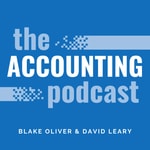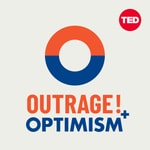Of Interest – Details, episodes & analysis
Podcast details
Technical and general information from the podcast's RSS feed.

Of Interest
Gareth Vaughan
Frequency: 1 episode/8d. Total Eps: 105

Recent rankings
Latest chart positions across Apple Podcasts and Spotify rankings.
Apple Podcasts
🇬🇧 Great Britain - businessNews
01/04/2025#93🇬🇧 Great Britain - businessNews
31/03/2025#63🇬🇧 Great Britain - businessNews
30/03/2025#47🇬🇧 Great Britain - businessNews
01/03/2025#92🇬🇧 Great Britain - businessNews
28/02/2025#66🇬🇧 Great Britain - businessNews
17/10/2024#98🇬🇧 Great Britain - businessNews
16/10/2024#67🇬🇧 Great Britain - businessNews
11/09/2024#86🇬🇧 Great Britain - businessNews
10/09/2024#56
Spotify
No recent rankings available
Shared links between episodes and podcasts
Links found in episode descriptions and other podcasts that share them.
See allRSS feed quality and score
Technical evaluation of the podcast's RSS feed quality and structure.
See allScore global : 63%
Publication history
Monthly episode publishing history over the past years.
Jonathan Shapiro: Why the integrity of bond markets on both sides of the Tasman is at stake
Episode 100
lundi 9 septembre 2024 • Duration 29:57
The integrity of bond markets on both sides of the Tasman is at stake as regulators probe issues of potential market manipulation, Australian Financial Review senior reporter Jonathan Shapiro says.
Shapiro is covering the Australian Securities and Investments Commission (ASIC) probe of the ANZ Group's role in a A$14 billion 2023 Australian government bond sale, and taking an interest in the Financial Markets Authority's probe into possible manipulation in New Zealand's wholesale interest rate and government bond markets.
Speaking in the latest episode of the Of Interest podcastShapiro says the ASIC probe of ANZ boils down to allegations of interest rate rigging, allegations of providing false information to the Australian Office of Financial Management (AOFM), which manages the Australian government's debt portfolio and hired ANZ as risk manager for government bond issues, and workplace culture issues.
"What is alleged is in that role they [ANZ] might have moved the market in their favour and made trading profits. And those trading profits came at the expense of the [Australian] government because ultimately their alleged actions forced up the government bond [borrowing] rate. We calculated about five basis points extra ... and that's for $14 billion of debt over 11 years," Shapiro says.
ANZ Group CEO Shayne Elliott says the bank itself has found no evidence misconduct or market manipulation by ANZ in connection with the bond issues cost the government financially. Elliott also says whilst some information provided to AOFM may have been incorrect, this was a mistake, rather than a deliberate act. Meanwhile, three traders have left the bank and a fourth has been warned.
Shapiro says what's being alleged is very serious and everyone in Australia has an interest in the outcome because the government was ANZ's client.
In New Zealand the Financial Markets Authority (FMA) says it's investigating two complaints about possible market manipulation in NZ's wholesale interest rate and government bond markets.
Shapiro says market integrity is absolutely critical, with pension funds, sovereign wealth funds, central banks and other investors trading government bonds.
"They don't want to be on the other side of of any funny business...it's extremely important that these markets are trustworthy."
Because they're viewed as the risk-free rate of return, government bond rates underpin the whole market, Shapiro notes.
"So regulators should absolutely be looking at any issues in these markets and making sure that they're transparent, that they're clean, and that there's nothing untoward going on. And one would think that participants in that market, especially the big banks of countries like New Zealand and Australia, would have an interest in making sure that, firstly, they're doing everything they can for their client, the government, but also making sure the bond market works as efficiently as it can."
The ANZ Group has been left out of the last three Australian government bond issues, Shapiro says.
In the podcast Shapiro also talks about why he refers to the ASIC probe as the biggest scandal in the ANZ Group's 182-year history, goes into detail on the three key issues at stake and the ANZ Group's responses, what's at stake for the bank potentially financially and reputationally, as well as for Elliott, possible similarities with what's at issue in the FMA investigations and more.
Pierre van Heerden: How it costs twice as much to set up a supermarket in NZ than Australia
Episode 99
vendredi 6 septembre 2024 • Duration 25:25
Grocery Commissioner Pierre van Heerden wants a third supermarket competitor to set up shop in New Zealand in order to tackle the country’s supermarket duopoly, but reducing the barriers to entry won’t happen overnight.
“What we've been told by these players is when they come and they want to open up a large store in New Zealand, the cost to get a spade in the ground is double that of Australia,” he says in a new episode of the Of Interest podcast.
“Now that is significant. And when they look at 'do we open up a store in Wagga Wagga or Tamworth or wherever in Australia' versus coming to open up in Auckland where there is massive demand or any of the other centres, really, the cost is double that of Australia. And the timeframe often is more than double as well. So when they do their business cases, they look at that and say, 'well, we're going to be better off by going elsewhere rather than here.' Now the government is saying that they're going to change things to make New Zealand more competitive for international players. And that's really what we're looking at.”
The Commerce Commission released its first annual grocery report on Wednesday which revealed ComCom’s efforts to boost grocery competition over the past year hasn’t had much impact.
The report found between 2019 and 2023, price-cost margins on non-fresh products across the New World, Pak’nSave, and Woolworths brands increased by 3.1 percentage points on average, while fresh food margins rose a lesser 0.4% on average.
The Commission defines price-cost margins as a measure of the difference between the price a firm receives for the sale of an item and the direct supply costs incurred.
Broken down, the price-cost margins for non-fresh products in that period rose the most at Foodstuffs North Island’s New World stores which reported a 3.9 percentage point increase in that period.
In second and third, Woolworths NZ’s Countdown stores, now renamed back to Woolworths, reported a 3.6 percentage point increase, and Foodstuffs South Island reported a 2.9% percentage point increase during 2019 and 2023.
The consumer watchdog said the report provided “clear evidence for stronger action” in NZ’s $25 billion grocery sector.
Speaking on the Of Interest podcast, van Heerden says the Commission wants to make sure the barriers to entry are reduced enough to make NZ’s supermarket sector more competitive.
Barriers to entry for potential new supermarket hopefuls also include things outside the Commission's control like planning regulations including zoning requirements within the local council’s District Plan, and the resource consent process in some cases.
The Overseas Investment Act 2005 can also create additional costs, delays and uncertainty in relation to site acquisition by overseas entities looking to enter or expand in the New Zealand grocery industry, van Heerden says.
Asked if a giant entity would be needed to enter NZ’s supermarket sector – which is currently controlled by Woolworths NZ and Foodstuffs – as a third entrant or if a smaller grocery player could work as well, van Heerden says it can be a combination.
“We would like to see someone who can come in and has the scale to do it nationally, because that's the way they're going to get the best prices from suppliers. You know, they can get good trade spend or discounts in their stores as well. Because when I look at Auckland as an example, in Auckland, the concentration or the market share of the major supermarkets has come down by 4% from 74 to, I think it's 70%. What has caused that – Costco coming into the market. A lot of the Asian supermarkets are growing and we've just seen Foodies open and they sold out from what I've seen, you know, four weeks' stock in three days,” he says.
“So consumers are anxious and they want to get better deals and they will support these players. But I want to see that same level of competition out in the smaller areas. And if a big player comes in and as in Australia, a hard discounter where they really give very good prices, I think that will shake up the industry and it will ensure that the big players are more competitive.”
Van Heerden says the supermarkets have “said all the right things” when contributing to the Commission’s work on the grocery sector
“If you look at the comments that both the major supermarkets have brought out since the report came out, they all say they work, they work with us, they support the objectives. But I want those words to change into actions. I want to actually see it happening. I look at, for instance, the refund policies and the pricing issues. We've raised that now with them since I started. And quite honestly, the response has been, 'yes, we're getting it done,' but the actual actions have been slow. So I'd like to see them ramping up those actions and letting their actions be the same as what they're telling us, that they're happy to work with us to get things done,” he says.
The Commerce Commission's grocery report can be found here.
*You can find all episodes of the Of Interest podcast here.
Stephen Jacobi: The US is a riskier trade partner than China
Episode 90
vendredi 12 juillet 2024 • Duration 35:03
New Zealand exporters to the United States might be at greater risk of being disrupted than those exporting to China, according to one trade expert.
Despite talk about the need to diversify away from China due to geopolitical differences, it may be the United States that hits Kiwi businesses with tariffs intended to shut them out.
Stephen Jacobi, the executive director of the NZ International Business Forum, said a second Trump presidency was a “sword of Damocles hanging over the global economy”.
Speaking on the Of Interest podcast, Jacobi said the 45th president had imposed “enormous tariffs” during his first term and plans to go further if elected for a second time in November.
“This time, the big thing is the 10% tariff he keeps talking about. If a 10% tariff was imposed on New Zealand exports to the United States across the board, a lot of trade would be killed off,” he said.
As part of his election campaign, Donald Trump has proposed a 10% tariff on all imports and a 60% tariff on imports from China. This would go much further than what he did after 2016.
Earlier tariffs of between 10% and 15% were applied to a specific list of goods, which were largely targeted at China but also included various other countries.
New Zealand was subjected to a 15% tariff on steel and aluminium, for example. This was bad enough, but a blanket tariff would hit much more important exports such as beef and dairy.
Jacobi said these sectors already faced strong competition from local US producers and there was also a risk that some international competitors might be able to dodge the tariff.
For example, Australia was exempted from the steel and aluminium tariffs because it had a free trade agreement with the United States — which NZ does not have.
“Go figure. This is the country that won't give us a trade agreement,” Jacobi said.
“I spent 10 years of my life trying to argue for an FTA with the United States and thought we had it in TPP, only to see them leave when President Trump got elected”.
It was this lack of guaranteed market access that makes the United States look like a riskier bet than China, where NZ does have a free trade agreement.
“Look, it's not always easy doing business with China, let's face it. But they have opened the market to us and it has transformed our economy”.
Chinese consumers were often the only ones who wanted to buy Kiwi products at the volumes and prices businesses require, he said.
Jacobi said he was not supportive of efforts to shift trade away from China, or join the AUKUS security agreement — which was clearly directed at China.
“Well, the risk [of disruption] is greater from the United States, potentially with a change of government”.
James Foster - the New Zealand EV, or 'batteries on wheels', scene
Episode 89
vendredi 28 juin 2024 • Duration 47:44
The first New Zealand and international wave of electric vehicle (EV) uptake is probably over, with cheaper cars and better public charging infrastructure required for further major growth in the uptake of these "batteries on wheels," says James Foster.
In a new episode of interest.co.nz's Of Interest podcast, Foster, who runs the EVDB website, says EVs reaching price parity with internal combustion engine (petrol) vehicles, will be a very significant development. The rise of Chinese EVs should help with this.
"At the beginning of 2022 we didn't really have any Chinese brand vehicles [in NZ] and now 20% of those on the road are [Chinese]. It's happened in two years. And that kind of shows you, I guess, why maybe the US have freaked out and implemented protectionist policies to try and protect their own car market. The amount of momentum coming out of China is extraordinary. And the build quality, I wouldn't say is taking people by surprise. But I know historically in New Zealand when we have new brands come to market...way back with the Japanese brands or Korean brands, at first you're kind of like, 'I don't know about this.' And then eventually they become normalised. They just become another brand that's part of the story," Foster says.
"I keep a running tally all the time of the 10 cheapest EVs in New Zealand, and then I get an average from that and that gives me an indication of where we're at. Those are all Chinese vehicles."
From a personal perspective Foster enjoys his EV being a part of energy self sufficiency, or sovereignty.
"That's something that I find quite profound. Since I got the solar panels on the roof I feel like I'm in science fiction...I've actually got the sun's rays going into my house's power and then into a battery in my car and I drive it. Compared to drilling oil, refining it, putting it on a ship, sending it over, driving it down..."
In the podcast Foster also talks about the reasons for the dramatic drop in EV uptake in NZ this year, the popular models and brands, prices including in the secondhand market, battery range, home and public charging, insurance and repairs, other EVs beyond cars such as utes, vans and heavy transport, hybrids and hydrogen vehicles, his expectations for NZ's future vehicle fleet and how electricity supply will cope.
Cameron Bagrie: Why and how the pricing of risk versus the taking of risk by banks needs to change
Episode 88
jeudi 20 juin 2024 • Duration 26:49
Ask Cameron Bagrie how to improve business and rural banking and some words reoccur in his answers. Three of them are "risk", "productivity", and "bankability."
With two parliamentary select committees set to hold an inquiry into banking competition, the business and rural banking markets will feature, unlike in the Commerce Commission probe into competition in the personal banking market. In the latest episode of interest.co.nz's Of Interest podcast, Bagrie, now of Bagrie Economics and Chaperon and formerly ANZ NZ's chief economist, speaks about why banks favour housing lending over lending to the business and rural sectors, and whether it would be good to entice them to change this and how it could be done.
At the top of the select committee inquiry's terms of reference ought to be balance between the pricing of risk versus the taking of risk by banks, and how that's impacting productivity, Bagrie says.
"I think we need to have a really good, hard debate about where the money is actually going, the composition of bank lending, whether it's short-term behaviour versus a long-term growth maximising strategy. Let's have a serious conversation about risk going forward, because risk is a big enabler. It's not open season on risk, but risk is an enabler of innovation, driving productivity. It just seems like we've screwed things far too far towards a low risk approach, and ultimately we pay the price for that over time," Bagrie says.
"I go back to the fundamentals of banking. The fundamentals of banking is pricing for risk and taking risk. And what we're seeing out there at the moment is that SMEs and farmers are certainly being priced for risk... Let's have a look at return on equities out of the banks by segment, not the aggregate top down number. Let's break it down into personal lending, including home lending. Let's have a look at business lending. Let's have a look at farm lending and the institutional [loan] book, and have a look at where those ROEs [returns on equity] actually sit. And I think we're going to be surprised how high those ROEs are for certain segments."
"The key here is to go through each segment and look at the risk adjusted returns," he says.
Figures from the International Monetary Fund show housing lending at 35% to 40% of total bank lending in some countries, whereas in NZ it's nearer 65%, having risen significantly over the past five years.
Bagrie also argues that banks' regulatory capital settings encourage them towards housing lending instead of business and rural lending, when there's "more productivity bang for your buck" when you're lending into the business sector.
"We need to have a look at this through the eyes of economic efficiency, economic growth, productivity, innovation. Because when you make banks a lot more safer, there's a price that you pay on the other side."
"The whole process of credit intermediation is a pretty critical part of economic development. And I don't think we've got financial system settings right on a whole lot of areas," he says.
Financial system settings and banking don't tend to be areas thought of when people think about what to do to make NZ a better place economically in regard to taking risk and driving productivity growth, Bagrie says.
"We sort of overlook what's a fundamentally essential one and that's that flow, that process of credit intermediation, [it] is absolutely essential. The Prime Minister has been talking a lot about encouraging the taking of risk...Well, yeah, in order for firms to take risk, you need the financial system to be prepared to take risk."
In the podcast Bagrie also talks about NZ businesses having a bankability problem and how to rectify this, the role of the Reserve Bank's regulatory capital settings, banks' becoming more vanilla, the rise and rise of bank profits over the past 30 years or so, the low level of banks' non-performing loans, the need for better competition policy across the economy, how housing lending has grown as a percentage of total NZ bank lending over the past 20-odd years, and especially over the past five years, Australian influence at the big four banks, open banking, his thoughts on the idea of a Business Growth Fund, and more.
Fiona Hall & Martin Dilly: Frustrations with & war stories from the world of anti-money laundering compliance
Episode 87
lundi 17 juin 2024 • Duration 47:11
By Gareth Vaughan
How seriously is the public sector taking the fight against money laundering and terrorism financing?
This question comes up in a new episode of interest.co.nz's Of Interest podcast, featuring barrister and solicitor Fiona Hall and anti-money laundering auditor and consultant Martin Dilly.
In a recent article the two raised concerns about impending job cuts to the team at the Department of Internal Affairs (DIA) tasked with supervising compliance with the Anti-Money Laundering and Countering Financing of Terrorism Act (AML/CFT Act).
Dilly says the DIA proposal to cut 40% of AML/CFT staff "gives us concern that that's going to affect their ability to enforce and supervise this act." There's concern whether the next evaluation of New Zealand by the Financial Action Task Force (FATF), an inter-governmental body that sets international standards and is considered the global money laundering and terrorist financing watchdog, will show NZ technically compliant with FATF's recommendations, and whether we're effective in supervising the reporting entities who must comply with the law.
"I have heard some reporting entities clapping their hands with joy if they're supervised by the DIA, but it's not the good reporting entities. And I like to think that most businesses are good businesses that want to comply with the law. And the risk you have is, yes, sure, if there are far fewer DIA investigators, you're less likely to get a knock on your door. But the problem is, if you do get a knock on your door, you now might be being investigated by someone who really doesn't have a good handle on the legislation, let alone a good understanding of your business. And you are going to be in a much worse position," Hall says.
Dilly made an Official Information Act (OIA) request to DIA in an attempt to get more information, which he says "shows a pattern of under resourcing of the AML team within the DIA."
"They were essentially budgeted to have 55 staff members. That's what they had determined was necessary...The information provided shows at no point did they ever hit 55 staff. They've been consistently below that. In 2022, they only had 37 staff instead of 55... So the question becomes, why is that?"
"One of the other questions I specifically asked was, has any of the budget been reallocated from the AML team to other areas of the Department of Internal Affairs? And we get some government speak here. So one of the things they talk about is they don't talk about reallocation. They use the terminology 'a permanent reprioritisation of constant underspend.' And my question is, well, what does constant underspend mean? Why would you be underspending your budget in an area where you are tasked with implementing AML and educating and supervising these new entities [lawyers, accountants and real estate agents]?" Dilly asks.
Other issues Hall and Dilly cite include different agendas and lack of consistency to AML/CFT Act supervision between the DIA, and NZ's two other AML/CFT Act supervisors, the Reserve Bank and Financial Markets Authority.
The two are hopeful that Associate Minister of Justice Nicole McKee's proclamation that reforming the AML/CFT Act is "one of my priorities this parliamentary term," could lead to improvement. They would both like to see a shift to a single standalone supervisor.
"I think the results from the [DIA] OIA show that if it's within other ministries that you cannot trust them to not reallocate budget, whatever language they want to put on that. The other point I would really like to see is a move back to a more risk based approach. The act itself is risk based, which essentially means that we accept that people have limited resources and you are supposed to direct those resources towards the areas of highest risk in your business," says Dilly.
Hall would like to see better supervision of the supervisors.
The two also have many tales of frustration and contradiction. Hall gives the example of a client that collects school donations, arranges school lunches, the uniform shop, and sells tickets to school shows, and has been deemed high risk of money laundering.
"I sat with the Minister and said, 'look, how does buying two pairs of grey shorts from a school uniform shop ever get anywhere near, I mean, this is where I'm going to launder my money?' It is ridiculous."
On the flip side she points out the likes of Ticketmaster, selling tickets to shows, aren't considered reporting entities None of those are considered reporting entities, and neither are travel agents who have trust accounts and manage funds.
"So we have this real disconnect, in my view, even about who is and isn't a reporting entity," Hall says.
Meanwhile in the real estate sector, they have to do customer due diligence.
"Their customer is the vendor, it's not the buyer, which I always find so interesting because that's where the money is. And often a property's been bought years and years before, and suddenly, you know, the vendor's been asked to prove how they purchased this and how they funded it, and there is resistance."
There are also personal anecdotes. Dilly says the bank he has been a customer of for more than 40 years asked him about an account he has had for 25 years.
"They have full visibility of every one of my financial transactions. And I was interrogated as to what my plans were for that account. And my thinking was why? Why would you rely on anything I tell you when you've got 25 years of data on my behaviour? If I was an actual money launderer, why would I give you a straight story?"
And here's Hall; "I was at the supermarket checkout and I'd been having a particularly trying day for poor entities [clients] that I didn't think should be captured [by the AML/CFT Act] at all. And I was standing in line and I looked up and I was behind a whole lot of gang members...They were buying lots of meat, lots of alcohol, and out came the wads of cash. And I thought, 'my poor clients who are spending all their money trying to comply, and really there's the money that we probably are looking for right in front of me."
Much more is discussed in the podcast including why the public should care about the fight against money laundering and terrorist financing and the impact of it, the purpose of it, concerns NZ could end up on a grey list, concerns over whether the Police Financial Intelligence Unit is reactive and doesn't have the capacity to deal with all the suspicious activity reports they receive, quick wins with asset seizure where there's a lower threshold from a legal perspective, and more.
Kylie Walker: What the mission-driven Future Made in Australia approach is & what it could mean
Episode 86
mercredi 5 juin 2024 • Duration 29:32
The Australian Government's a Future Made in Australiainitiative could attract skilled migrants and potentially investment and entrepreneurs from New Zealand, and ultimately be a catalyst for a much more sustainable future, says Kylie Walker, the CEO of the Australian Academy of Technological Sciences & Engineering.
In last month's budget, Prime Minister Anthony Albanese's government unveiled a Future Made in Australia, saying this would invest A$22.7 billion over a decade to "build a stronger, more diversified and more resilient economy powered by clean energy, in a way that creates secure, well paid jobs and delivers benefits to communities across the country."
Speaking in the latest episode of interest.co.nz's Of Interest podcast, Walker says a key aim of the initiative is to boost Australia's economy complexity, a measure of the knowledge in a society as expressed in the products it produces, by upskilling and moving up the value chain.
"Obviously, we can't do everything, but we can absolutely do more than just digging up [natural resources such as minerals] and selling them off and then buying them back again in more technologically sophisticated forms. We know that those critical minerals are absolutely necessary for the ongoing electronics revolution, as well as for the clean energy future globally. So we can, for example, process our iron ore, or it can be used in or [turned] into green iron, at least, so that it can be used in green steel. And we have the minerals to make batteries for electric vehicles, for example. We have extraordinary batteries technology. Some of our researchers and developers in that space are amongst the best in the world. And so it seems to me, putting these two kind of natural assets at either end of that development spectrum together, that there ought to be a way to move us a little bit further along the value chain," Walker says.
To this end there'll be a need for skilled workers, especially in STEM (science, technology, engineering, and maths).
"Around 48% of professional occupations were in shortage across Australia last year, and that's up from 39% the year before. There's a similar shortage in the technical and trades occupations in Australia. So we are both going to have to train new people domestically as a matter of priority, and in addition to that, rely on skilled migration. And, you know, I think traditionally it's probably reasonable to assume some of that skilled migration might come from New Zealand," she says.
There should also be a role for private sector investment, research, development and ideas. Much of the earmarked government investment takes the form of tax incentives, but also includes a range of funding mechanisms.
"One of the other focus areas that we've got simultaneously with this Future Made in Australia push is, of course, building capacity in the global region. And there is a huge place, a huge part to play for New Zealand, for Pacific island nations and other near neighbours like Indonesia, in collaborating to research and commercialise those developments, particularly in the technology and engineering spaces, and to do that for mutual benefit, so that we build the capacity for the entire region," says Walker.
Ultimately, Walker hopes in 20 or 30 years, a Future Made in Australia can be looked back on as a catalyst for a more sustainable future.
"And I mean that both in terms of economically sustainable and societal wellbeing, and in terms of environmentally sustainable. I think if we do this really well, we can build a more circular economy, we can reduce our waste as well as our emissions. We can see small scale manufacturing and pop up factories all over the place. There are some really, really interesting and pretty great technologies coming up where, for example, a micro-factory the size of a shipping container can take glass and fabric being recycled from a building site and turn it into a new material to use in a new building on the same site. I'd like to see huge and widespread adoption of renewables [energy]. And I'm hoping that when we look back, we see not only that resilient infrastructure within Australia, but a booming export market for those products as well, ranging right through from the energy and the fuels, through to those slightly value added up the chain minerals exports, green agricultural exports as well, and a range of other stuff which, frankly, you and I haven't heard of because it probably hasn't been invented yet."
In the podcast Walker also talks about where a Future Made in Australia comes from, what's behind it, what needs to happen for Australia to become a renewable energy superpower, green hydrogen, mining, critical minerals, concerns about a Future Made in Australia picking winners and benefiting billionaires, its national interest framework, research and development, and how Australia can get along in a world of rising geopolitical tensions between the United States and China.
Geof Mortlock: Problems with NZ's depositor compensation scheme & bank failure tools
Episode 85
jeudi 23 mai 2024 • Duration 38:20
The fund backing New Zealand's incoming depositor compensation scheme is going to be small, it's going to take a long time to reach its target level, and the lack of depositor preference in the scheme is a mistake, according to a deposit insurance expert.
Geof Mortlock, an international financial regulatory consultant who does work for the International Monetary Fund and World Bank specialising in financial system stability, resolution of bank failures and deposit insurance, spoke about the depositor compensation scheme in a new episode of interest.co.nz's Of Interest podcast.
The scheme, expected to be launched in mid-2025, will provide protection of up to $100,000 per eligible depositor, per licensed bank, building society, credit union and deposit taking finance company, in the event of deposit taker failure.
Finance Minister Nicola Willis has decided the fund backing the scheme, to be funded through levies paid by deposit takers, will be built up over 20 years to a size equivalent to 0.8% of protected deposits, or about $1 billion.
Mortlock says other countries typically have a fund size equivalent to between about 1% and 4% of protected deposits, and he recommends taking about 10 years to build the fund up to its target level.
He says the NZ scheme would likely be used for the failure of a non-bank deposit taker or small bank, but wouldn't be sufficient for the failure of a medium-sized or big bank, the failure of which would require "alternative mechanisms." Nonetheless Mortlock says it is worth having the scheme.
"I think it's definitely worth having because there are quite a sizable number of small deposit takers out there. And at some stage, one of them is going to fail. Hopefully not for a long time. But statistically, if you look around the world, there are occasional bank failures, and most of them tend to be small."
"For a small deposit taker or a medium sized one, I think having a deposit insurance scheme is really important, and I think it helps in two ways. It reduces the risk of what we call interbank contagion, where one failure can trigger multiple runs across the banking system. And secondly, it helps to reduce the risk for the taxpayer, because it means that there is a dedicated fund paid in by deposit takers and therefore [this] reduces the need for government funding," says Mortlock.
"But for a large bank failure, it is not going to be sufficient. And if you look around the world for a large bank failure, deposit insurance funds are not typically used anyway."
An option for a larger bank failure is the Reserve Bank's Open Bank Resolution (OBR) Policy. In the podcast Mortlock explains why he thinks it would be "potentially catastrophic" for the Reserve Bank to use OBR, and he doesn't think a Finance Minister would allow them to.
In the podcast he also talks about what other resolution options could be for a large bank failure, what products the scheme will cover, the impact deposit takers paying a levy may have on deposit rates, how the Reserve Bank should administer the scheme, bail-in, depositor preference and more.
Under depositor preference, depositors rank ahead of other secured creditors in a liquidation. Mortlock says it helps reduce the risk of runs on banks, and facilitates bail-in whereby unsecured liabilities such as bonds may be written down or converted into equity in the event of a bank failure.
At the moment, with OBR, NZ is "about the only jurisdiction I can think of outside of some dubious ones, which would apply a haircut to deposit liabilities and no depositor preference," Mortlock says.
"So if you're a wholesale depositor in a bank and the banking system is looking shaky, and you know that the OBR is out there and could be triggered, what are you going to do? I think you're going to do a preemptive run. And what would that do? That would almost certainly mean that the [Reserve Bank] Governor, joined by the Minister of Finance, would have to say, a, we're not doing OBR, and b, we are putting in place a temporary guarantee of all wholesale deposits. Just the opposite of what you would want to have to do. So I think it is a foolish policy, OBR, and made even more foolish by the absence of depositor preference."
Shamubeel Eaqub: Why institutional landlords should be better for renters than 'accidental' landlords
Episode 84
lundi 20 mai 2024 • Duration 38:00
Renting in New Zealand today is more difficult than a decade ago, with fewer properties available, rents continuing to increase, and the quality of rental properties not much better, Shamubeel Eaqub says. However, the economist and co-author of the 2015 book Generation Rent, rethinking New Zealand's priorities, says it's not all bad news.
Speaking in the latest episode of interest.co.nz's Of Interest podcast, Eaqub says the "lived reality of renting" has got harder over the past decade, but the regulatory settings are slowly improving.
"We need to ensure there's sufficient renters' rights ... because in New Zealand renting is so insecure and is such a problematic thing for so many people."
One area giving Eaqub optimism is the rise of build to rent, where landlords must offer 10-year rental tenancy agreements.
"I've been a long time fan of institutional landlords rather than accidental landlords. When you are in the business of land lording, you want to have as little turnover as possible, whereas if you're an accidental landlord, you are much more interested in having quick turnover and being able to sell it off and all those other bits and pieces. The tenant is kind of incidental to the story and a bit of an annoyance, really."
Eaqub says build to rent offers two types of security; tenure security and financial security.
"Because more often than not [build to rent] will come with contracts that will have a known level of [rental] increase for the next, say three years, so you can plan your finances. Whereas in a normal tenancy you have only certainty for 12 months and then you don't know what will happen next."
Build to rent is adding new housing supply targeted for one particular use, which he says is unusual in NZ.
"If you look at what happens in New Zealand, or how it has generally happened in New Zealand in the past, it's the idea of filtering, right? You build houses which are for new homes and for rich people, and then the older homes that are secondhand, that kind of gets recycled into the rental market."
"So I'm very encouraged to see this new supply that's coming in, that's very much targeted towards renting specifically. Because if you think about the pressures that we see in terms of emergency housing, social housing and all those kinds of things, that's happening because people are falling out of the rental market, because the rental market is short supplied and is very expensive. And so the more we can do to get more supply directly and retained in the rental market, the better it is," Eaqub says.
He also talks about his disappointment at the fracturing of the Labour-National consensus on medium density residential standards (MDRS).
"[The consensus] showed me for the first time the grown-up-ness of the way that our politicians can respond to structural problems, that we can put aside our political differences and just do something because it's the right thing to do, not because you're on one side of the House or the other. But that grown up moment of politics lasted very, very briefly, and we threw it away at the first chance when the election campaign started," Eaqub says.
In the podcast Eaqub also talks about NIMBYS, the construction sector, what's driving rents, problems with local government, his views on rent controls, the accommodation supplement, emergency housing, what the rental market may be like for his kids' generation, and more.
Jennifer Wilkins: making the case for degrowth
Episode 83
mercredi 24 avril 2024 • Duration 33:27
With economic growth no longer producing benefits seen in the past such as raising living standards for the middle class, and human activity having exceeded some planetary boundaries, it's time to embrace degrowth, argues Jennifer Wilkins.
Wilkins is a researcher and advocate on sustainability in business with a focus on degrowth. In a new episode of interest.co.nz's Of Interest podcast, she discusses the degrowth movement.
"Degrowth is normally described or defined as an equitable downscaling of production and consumption. Other people add in other parts of that definition, which is about reorganising the market for a new role in provisioning. So I think about degrowth as being a transition. Starting from the economy that we have now, which is very much about trickle down wealth and extracting from nature, to a future economy which is more about universal wellbeing in an economy within ecology and nature. And degrowth is really the transition from one to the other," Wilkins says.
"So I don't think about it as being a very rapid change or a very smooth change. I think about it as being a hybrid of emergence and receding ideas, quite a lot of tension and a lot of mutation in the economy. So it's quite a complex thing, degrowth."
She traces degrowth's origins to the 1970s, and Romanian mathematician, statistician, economist and author of The Entropy Law, Nicholas Georgescu-Roegen, "the father of ecological economics."
The push for net zero greenhouse gas emissions is needed but not enough, Wilkins says. With a degrowth economy requiring more of a collective than individual approach, Wilkins says "the jury's out on the role of capitalism." And does advocating for a reduction in production and consumption mean people would be expected to accept a lower standard of living?
"I think degrowth is definitely looking to raise standards of living for the majority of people around the world. I think standards of living are actually decreasing at the moment. I think around the world, middle class lifestyles are decreasing in quality. And so there's this myth, if you like, that raising growth improves wellbeing. But the evidence shows that there's actually a bliss point. Economic growth improves wellbeing up to a certain GDP per capita, and beyond that, it either doesn't make a difference and/or eventually it begins to reduce wellbeing," says Wilkins.
"The bliss point is actually quite a lot lower than New Zealand's GDP per capita. So we have theoretically enough wealth already. We just need to redistribute it. I think people who are very well off will not see a reduction in their wellbeing or their living standards through a redistribution, but I think people who are less well off will see a great improvement in their wellbeing through a redistribution."
Wilkins believes degrowth will become public policy, saying politicians who want to run on a degrowth platform have lots of positive things they can say.
"It's about redefining what we see as value. I mean, at the moment we think about wealth as value and prosperity, but prosperity is really about things like having more leisure time, having a healthier natural environment around us, having more community health and more community cohesion, having more access to services and assets, and having an increase in our democratic participation. And those are all things that degrowth wishes to grow," Wilkins says.
"I think it [degrowth] will become public policy. I think parties will run on it as a platform. It's hard to say when that would happen, but I think in the not too distant future. And I think the thing is that growth as an idea is so embedded as a common sense that it never has to explain itself. And so there's a bit of an unfair playing field in terms of degrowth will have to explain itself to become credible. Whereas growth gets a free pass."
"Growth is not producing the effects that we have experienced in the past, like the raising the living standards of the middle class. That ship has sailed. We're in a different world now. There isn't room for growth to create those kinds of benefits anymore. We need to create benefits in a different way. So growth will fail to evidence itself as a wellbeing, a process for wellbeing in future. And there'll be a confluence of factors. There'll be, you know, this failure of neoliberalism, which I think we're already experiencing," says Wilkins.
There's more from Wilkins in the podcast itself, including what degrowth would mean for individuals, businesses and communities, and what it would mean for agriculture, manufacturing and tourism.









